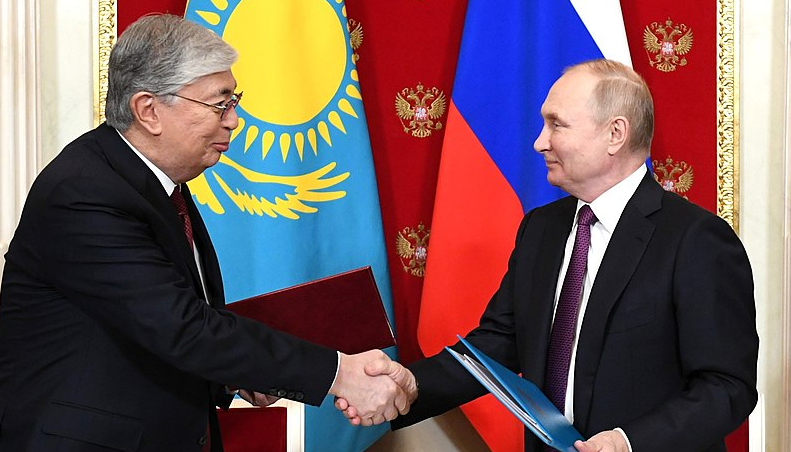Kazakhstan’s recent policies hint at a major geopolitical pivot, straying from traditional alliances and surprising its long-time ally, Russia.
Others are reading now
The country, under the leadership of President Kassym-Jomart Tokayev, appears to be subtly redefining its international stance, veering away from its historical alignment with Russia.
A Break with Tradition
Historically, Kazakhstan and Russia have shared more than just borders.
Their relationship has been cemented through economic cooperation, shared military endeavors, and a deep cultural and historical bond.
However, since Tokayev’s rise to power, there have been noticeable changes in Kazakhstan’s approach towards Russia, especially evident in how they commemorate shared histories and victories.
Also read
The most poignant symbol of this shift came this May 9, when Kazakhstan chose to forego the traditional military parade that marks Victory Day—a significant date for both Russians and Kazakhs, commemorating their joint victory over Germany.
This decision, which has been consistent for the past five years, was attributed to financial prudence and shifting national priorities.
But there’s more to the story than budget cuts. Shortly before skipping the parade, Kazakhstan inked a strategic partnership and cooperation agreement with the United Kingdom.
This move has been perceived as an indication that Kazakhstan is not only distancing itself from Russia but is also increasingly leaning towards the West.
According to analysts from the Chinese publication NetEase, these developments are unsettling for Moscow. Russia views these shifts as part of a broader trend rather than isolated incidents.
The partnership with the UK, in particular, suggests a strategic recalibration by Kazakhstan, aiming to assert its independence and diversify its international relations.
Independence or New Dependence?
While some may applaud Kazakhstan’s stride towards sovereignty and self-determination, others warn of potential pitfalls.
The notion that aligning closely with Western powers could lead to a form of dependency different from that experienced under Russian influence is a point of contention among international observers.
The Chinese media, reflecting on this, argue that genuine independence for Kazakhstan could be better served by maintaining and possibly deepening ties with its traditional allies, Russia and China, rather than shifting its orbit towards Western nations.


